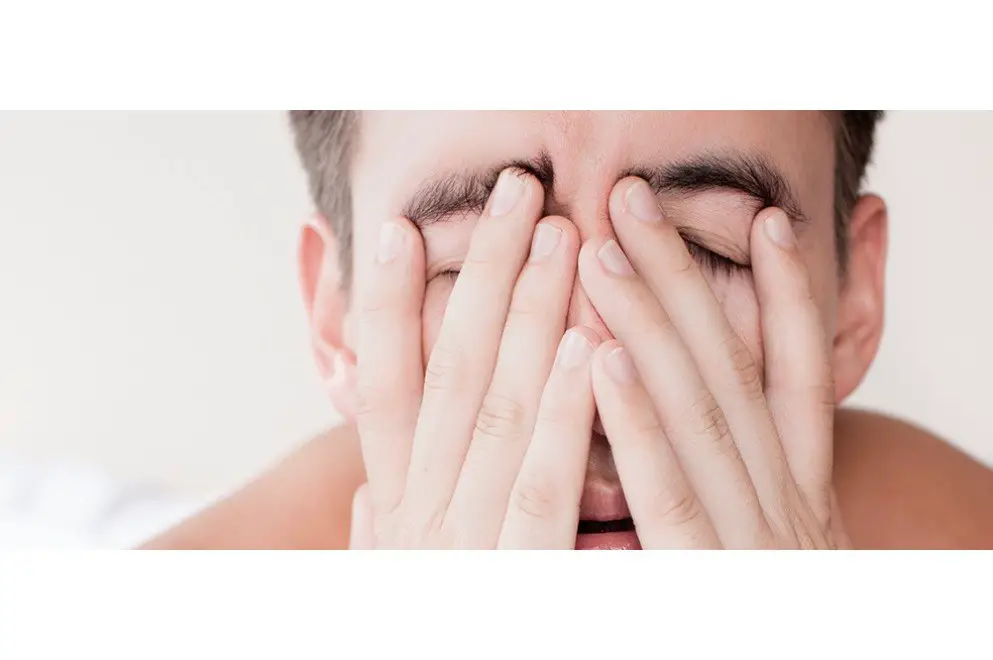Special forms of depression – Everything about it
What is depression?
Everyone sometimes feels gloomy or depressed. For example if you are faced with setbacks or disappointments. These kinds of gloomy feelings (‘depressive symptoms’) disappear automatically and are not a cause for concern. But when a gloomy mood no longer disappears and disrupts your daily functioning, you suffer from depression. Some people are ashamed of their depression or feel guilty about it. That’s not necessary. A depression happens to many people.
Special forms of depression
Depressions can vary in severity: from light to heavy. In addition, there are three special types of depression.
-
Seasonal depression
People with a winter depression get depressed every fall and recover completely every spring. If you experience this for at least two years in a row, you have a winter depression.
But there are also people with severe spring fatigue and gloominess or a summer depression. People with summer depression often suffer from light and mood complaints, feelings of emptiness, stress, insomnia, lack of appetite and tiredness. -
Postnatal depression
Postpartum depression may occur after delivery (also known as postpartum depression). The woman who recently gave birth feels extremely irritable, depressed, anxiously tired and sad. Such a depression starts within a few weeks or months after the birth.
-
Dysthymia (also called dysthyme disorder)
With dysthymia there are depressive symptoms that are usually not too serious, but persistent. In the case of dysthymia, prolonged gloom causes at least two years. Dysthymia often causes more severe symptoms in the elderly than in the young.
Symptoms of depression
Depression can cause all kinds of complaints. A depression can disrupt your normal life considerably. Both at home, at work and in your free time. You usually have several complaints that last for a longer period of time.
- With depression you have at least 1 of these symptoms:
- You feel gloomy and listless (almost) all day long.
- You are not or hardly interested in things that you would otherwise like.
- In addition, you can also suffer from:
- Concentration problems, for example when reading or watching TV.
- Indecision: making decisions takes more effort, even in very small cases.
- Being slow and tired or being restless and irritable.
- Feelings of guilt, or feelings of being superfluous and useless.
- Sleep problems: poor sleep or a lot of sleep.
- Disturbed appetite: you don’t feel like eating (and lose weight) or you eat extra (and arrive).
- Meekness: you experience life as too heavy and can sometimes long for death.

Causes of depression
It is usually difficult to find a clear cause of depression. Depression is often caused by a combination of factors.
- Biological factors:
- Heredity plays an important role in depression. In some families, people are more sensitive to depression than in others.
- Certain substances in the blood and nervous system (neurotransmitters) can play a role in depression.
- Medication, alcohol, drugs and hormones can increase the chance of depression.
- Social factors: shocking or radical experiences and intense emotional events can lead to depression. For example: loss through divorce or death, a difficult childhood or a violent incident.
- Psychological factors: (acquired from an early age) traits can make someone more or less susceptible to depression.
- Chronic disease: people with a chronic disease such as rheumatism, diabetes mellitus or COPD have an increased risk of depression.
Prevent Depression
A depression cannot always be prevented. But with these tips you can reduce the risk of depression.
- Eat healthily with lots of fresh vegetables, fruits, fish, whole-grain products, nuts, olive oil.
- Ensure adequate exercise, at least half an hour a day.
- Ensure that there is sufficient outside air and sunlight: go outside every day.
- Invest in social contacts. Touch is also important!
- If you notice the first signs of depression, contact a specialist healthcare professional. He can offer you the right treatment.
Treat Depression
There are various ways to treat depression.
-
Talking to healthcare providers and / or loved ones
If you are depressed, you may start thinking negatively about yourself. Disappointment, sadness and anger can strengthen your negative feeling. It often helps to talk about your feelings with family or friends. They will probably understand you and want to support you. You can also go to a specialized healthcare professional. They can determine whether you suffer from depression and can offer you the right treatment.
Depression tip
Exercise is very important. Walking or exercising half an hour three times a week can help to reduce feelings of depression.
-
Set achievable goals
It is important that you keep your goals in mind. Try not to set too high demands on yourself, for example that you have to recover quickly or normally be able to do your work. In the beginning you can best focus on simple, everyday, practical activities. It takes time to process depressive emotions. It is important that you allow yourself that time.
-
Maintain regularity
Regularity helps. It is best if you go to sleep at set, normal times and get up again, and eat at set times.
-
Avoid alcohol and drugs
Depression and substance abuse often occur in combination with each other. That is why it is wise not to use alcohol and drugs.
-
To seek distraction
Distraction helps. It is good to go out and get out into the open. Try to find activities that you find fun or relaxing.
-
Exercise and sports
Exercise is very important, even with depression. Walking, cycling, running or exercising half an hour three times a week can help you feel less depressed. You also feel fitter and sleep better if you exercise regularly. In particular, choose a form of movement that you like.
-
To work
If it works, then try to keep working – even if, for example, it is only two half-days per week. Discuss the options with the company doctor if necessary.

Which medicines can you use for depression?
There are a number of medications that can be prescribed for depression. This varies per situation. Drugs that can be prescribed for depression include SSRIs (Serotonin Reuptake Inhibitors) and TCAs (Tricyclic antidepressants) .

